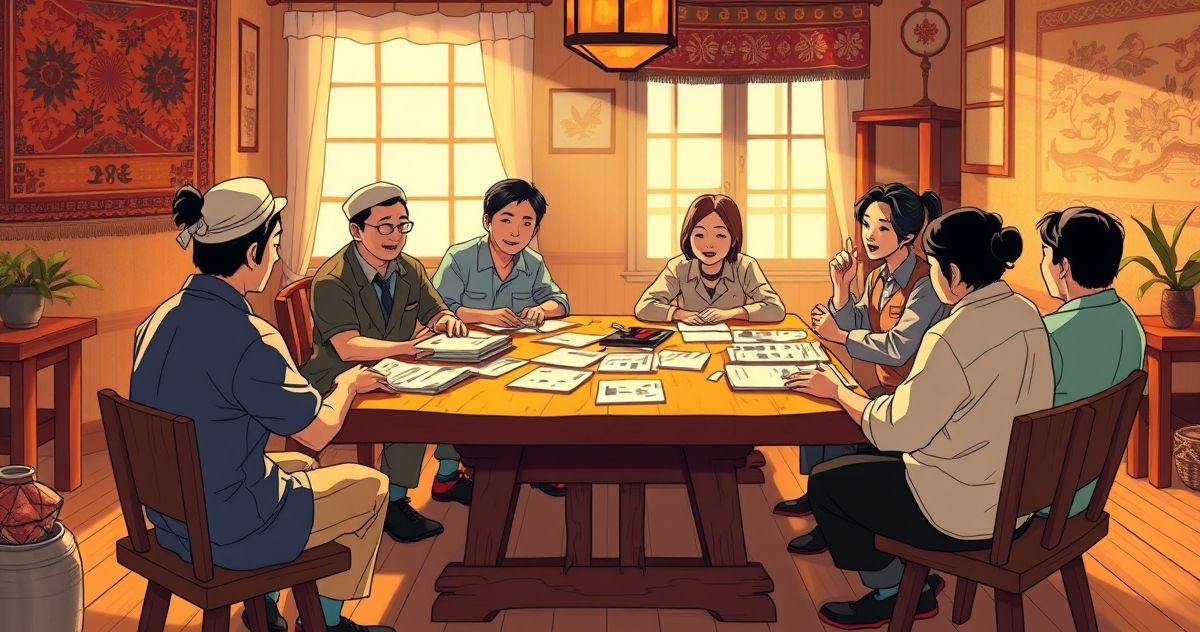Labor and management representatives are engaged in fierce conflict over the 2026 minimum wage determination, with the Minimum Wage Council set to make its decision on July 10th. While management advocates for a freeze, labor demands substantial increases, creating a tense standoff.
Current Minimum Wage Council Deliberations
The Minimum Wage Council has conducted three meetings to discuss next year's minimum wage. The current minimum wage stands at 10,030 won per hour, with next year's rate expected to be determined between 10,210 won and 10,440 won.
The council consists of 27 members: 9 worker representatives, 9 employer representatives, and 9 public interest representatives. The council comprehensively considers workers' cost of living, wages of similar workers, labor productivity, and income distribution rates when determining the minimum wage.
Management Position: Freeze and Differential Application
Management strongly advocates for freezing the minimum wage, citing the management burden on small business owners and small-to-medium enterprises (SMEs). Lee Myung-ro, director of the Korea Federation of SMEs Human Resources Policy Division, emphasized during the second meeting that "small business owners face overall difficult management conditions, with some sectors like food and accommodation on the brink of survival."
Management particularly urges the introduction of differential application by industry sector. They argue that industries with lower wage-paying capacity should have lower minimum wage applications. Lee stated, "Next year, payment capacity for SMEs and small businesses is expected to decline further," diagnosing that "export tariff crises are expected to significantly reduce exports, making trickle-down effects difficult to expect."
The Korea Federation of Micro Enterprise held a press conference on June 26th, arguing that "high minimum wages cause small business owners to avoid employment, and part-time job splitting due to weekly holiday pay issues not only deteriorates employment quality but eliminates jobs entirely." They cited last year's record-high 1.74 million ultra-short-term workers (less than 15 hours per week) as evidence.
Labor Position: Substantial Increase Demand
Labor representatives argue that substantial minimum wage increases are inevitable due to inflation and rising living costs. Ryu Ki-seop, secretary-general of the Korean Confederation of Trade Unions, emphasized that "according to Minimum Wage Council data, last year's living costs for single unmarried workers reached 2.64 million won monthly, a 7.5% increase from the previous year," stating that "since both labor and management prioritize inflation and living costs, substantial minimum wage increases are inevitable."
Lee Mi-seon, vice-chairperson of the Korean Confederation of Trade Unions, highlighted the poor treatment of special employment and platform workers. She stated, "We submitted a minimum wage violation report detailing special employment and platform workers remaining at 8,220 won hourly levels," adding that "they receive no compensation for travel and waiting time while bearing all costs and insurance themselves, threatening their survival."
Labor also strongly demands resolution of minimum wage system blind spots. Lee emphasized that "the Minimum Wage Council isn't just about setting numbers. Following constitutional and minimum wage law principles, we must resolve blind spots and guarantee wages for human dignity," arguing that "we must change the reality where low wages become lifetime maximum wages and the structure where special employment and platform workers receive no legal protection."
Small Business Owners' Practical Difficulties
Field reports indicate growing burden from minimum wage increases. Small business owners face survival crises due to labor cost burdens, with reducing staff or converting to unmanned stores becoming commonplace. Serious cases lead to business closures.
The food and accommodation industry faces particularly severe difficulties. The self-employed sector, which showed recovery after COVID-19, faces renewed challenges as minimum wage increases create additional burdens.
One coffee shop owner lamented, "With minimum wages continuously rising, hiring even one part-time worker becomes burdensome," explaining, "I have no choice but to reduce operating hours or run the business alone."
Minimum Wage Impact Rate and Policy Effects
According to Ministry of Employment and Labor data, the 2025 minimum wage impact rate is 13.7%, affecting approximately 3.01 million workers. The impact rate represents the proportion of workers requiring wage increases to comply with next year's minimum wage.
The minimum wage system was introduced in 1988 to promote worker life stability and qualitative improvement of labor force. However, concerns about employment reduction and increased small business burdens due to rapid increases continue to be raised.
Government Concerns and Responses
The government operates various support measures including job stability funds to alleviate small business and SME burdens from minimum wage increases. Job stability funds are payments to business owners to ease management burdens and ensure worker employment stability following minimum wage increases.
Despite these support measures, field difficulties persist, raising calls for more careful approaches in minimum wage determination processes.
International Comparison and Future Outlook
Korea's minimum wage level reached 60.9% of median wages in 2023, higher than the OECD average. However, experts note limitations in direct comparisons due to differences in wage components included in minimum wages across countries.
Attention focuses on whether balanced decisions considering both economic conditions and worker life stability can emerge from the July 10th Minimum Wage Council decision, given the persistent gap between labor and management positions.
Resolving repeated conflicts in minimum wage determination processes requires more systematic and objective standards alongside communication and compromise between labor and management. Developing practical alternatives considering both small business owners and vulnerable workers' survival has emerged as an urgent task.

Original: https://trendy.storydot.kr/economy/2026-minimum-wage-decision-labor-management-conflict


0 Comments